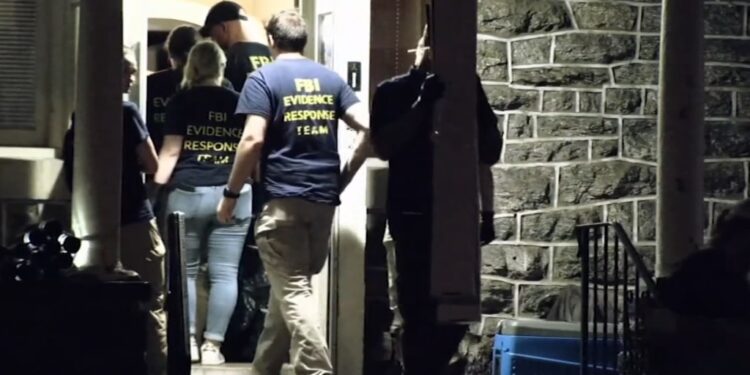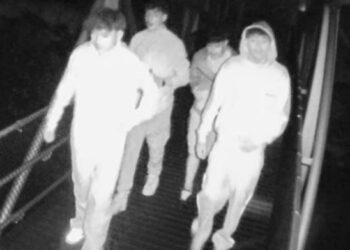A Philadelphia teenager has been charged with plotting a potentially “catastrophic terrorist attack” after federal authorities discovered the teen had been allegedly communicating with an al-Qaeda-affiliated terror group and gathering bomb-making material.
The 17-year-old was taken into custody by FBI SWAT officers at his home in West Philadelphia on Aug. 11 after an investigation headed by the FBI Joint Terrorism Task Force, officials revealed Monday.
The unnamed teen is suspected to have been in contact with Katibat al Tawhid wal Jihad, an organization designated as a global terrorist group by the State Department in 2022.
The group, which has links to al Qaeda, primarily operates in Syria’s Idlib Province but is also believed to be responsible for the April 2017 metro attack in Saint Petersburg, Russia, and an August 2016 suicide car bombing outside the Chinese Embassy in Bishkek, Kyrgyzstan.

The juvenile allegedly received guidance from the terror group on how to construct improvised explosive devices and FBI agents observed the teen purchasing bomb-making materials and “outdoor or tactical gear” before his arrest.
“The work of the FBI Joint Terrorism Task Force potentially thwarted a catastrophic terrorist attack in the name of a perverted ideology that in no way, shape, or form represents the beliefs of the overwhelming majority of peace-seeking people of faith, including Muslims,” Philadelphia District Attorney Larry Krasner said Monday.

“The charges we have filed against this individual represent the most serious alleged terrorist activity prosecuted in Philadelphia County court in recent history. We intend to pursue full accountability for these crimes and will continue to work vigilantly with our law enforcement partners to protect all of our communities from hateful, ideologically driven acts of violence,” he added.
The suspect, who wasn’t named by officials because of his status as a juvenile, will avoid federal charges for now. US attorney offices generally do not handle juvenile cases, even those related to terrorism.
However, the Philadelphia District Attorney’s Office will file a motion to prosecute the suspect as an adult and charges could be escalated to the federal level as the investigation continues, Krasner said Monday.
The teenager has been charged with weapons of mass destruction, criminal conspiracy, arson, causing/risking catastrophe, attempt to commit criminal mischief, possession of an instrument of crime, and recklessly endangering another person.

FBI Special Agent in Charge Jacqueline Maguire said Monday that the teenager “appeared to be taking steps to travel overseas for the purpose of joining, or supporting, terrorist activity.”
“Most concerning however, was the evidence that he had access to firearms and had purchased items and materials commonly used in the construction of improvised explosive devices,” McGuire said.
In the last few weeks, the suspect had allegedly been surveilled purchasing tactical equipment, chemicals, wiring, and devices that could be used as remote detonators.
On Aug. 8, 2023, U.S. Customs and Border Protection also provided records to authorities which revealed 14 international shipments of military and tactical gear to the juvenile’s address.
“I think it’s very fair to say that lives were saved because of this investigation,” McGuire added.

A 2018 bulletin from the Office of the Director of National Intelligence warns that teenagers are “particularly vulnerable” to being radicalized by terror groups that often gear their messaging toward youths, and plots and attacks by minors in the US and abroad are “likely to endure.”
“ISIS and al-Qa‘ida continue to influence minors through online messaging to plan and conduct attacks,” the DNI memo states. “For example, in October 2018, the al-Abd al-Faqir Media Foundation—a pro-ISIS media outfit—launched its first Arabic-language magazine titled ‘Youth Of The Caliphate,’ aimed at young supporters.”
The missive to law enforcement notes that there were “few identifiable behaviors that raised suspicion or concern” in several terrorism cases involving minors, underscoring the challenge law enforcement face in identifying juvenile terrorists.
“Violent extremists’ use or encouragement of minors to conduct attacks probably stems in part from their desire to influence impressionable supporters and circumvent CT security measures that monitor for suspicious activities conducted by adults,” the DNI note states.



























